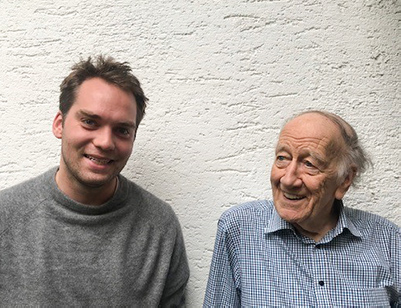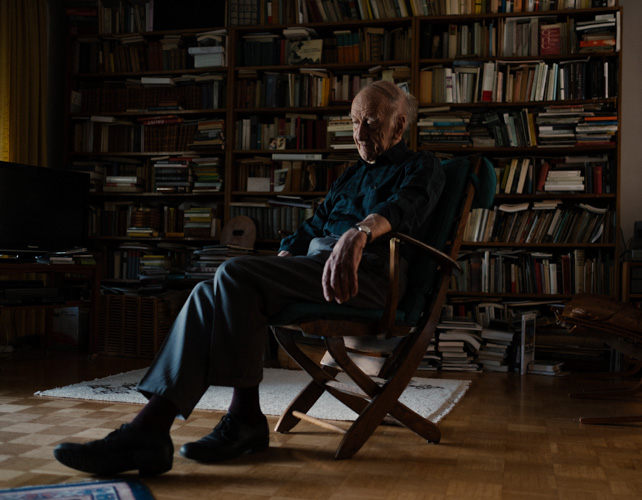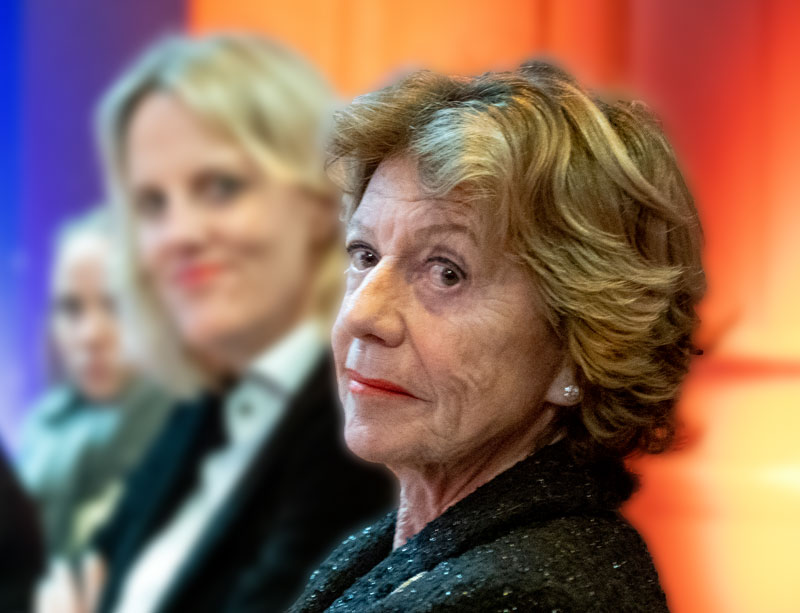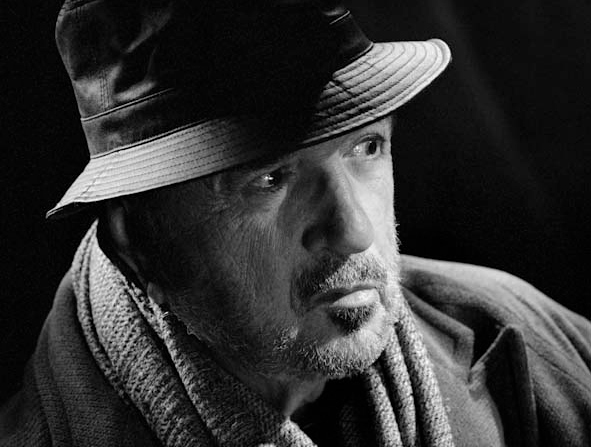Christian Meier, born 1929 in Pomerania in present-day Poland, is a renowned intellectual and professor of Ancient History. In 1950, he left the GDR to move to West Germany. After his studies of history, classical philology and Roman law, he first became a professor in Basel. Later on he taught in Cologne, Bochum and finally, in Munich where he held his position until his retirement in 1997. From 1980 to 1988, Meier was chairman of the important “Association of Historians in Germany”, which coincided with famous “Historikerstreit”, a controversial scholarly debate in West Germany as to the interpretation and significance of the Holocaust, catapulting Meier into the public spotlight. Between 1996 to 2002, Meier was the President of the influential “German Academy for Language and Poetry”. Meier not only wrote influential and widely read books on the values of Athenian democracy and the Fall of the Roman Republic, but also published extensively about the “collective memory” and the question of guilt in the German mindset.
In his conversation with Simon Strauß, Christian Meier discusses the ways in which the idea of Europe has reverberated throughout his own life. The two touch on the notion of “Heimat” [home or homeland] and the question of citizens’ political responsibility. Meier describes the moment when he became aware of the existence of concentration camps in Nazi-Germany and the moment he found out the Berlin Wall had came down, as well as talking about a secret urge to sabotage any form of bureaucracy, his personal pet hate.

Christian Meier was interviewed by Simon Strauß, who like Meier, is a classicist and historian by training. Strauss now works as a writer and journalist for the Frankfurter Allgemeine Zeitung (FAZ). He is also a founding member of “Arbeit an Europa”.
Interview Highlights
On his first contact with Europe
I left the GDR in 1950 [the year after the GDR was founded] and in 1951, the archaeological institute in Heidelberg made its first field trip to Paestum [ancient Greek city and archeological site], which I joined. You traveled there by yourself and I first visited Verona, Florence, Rome, and Naples. I saw a lot and you could say that this was my first contact with Europe. Florence’s Baptistery in particular, where Italians stood and sat around nearby, and I could speak to them in Italian. About the future of Europe, for example.
On his early encounters with prejudice against Jews
In Stettin, I played with kids in the streets, like you did back then, and one day, I was taken aside and told that I couldn’t play with three of those kids because they were Jews. I went to my father and asked him what Jews are, I had no idea. He asked me if I had the feeling that those kids were somehow different from me. When I answered him “No”, he told me to go back and play with them. The kids themselves were Christian but their father was Jewish, the mother a Christian. The father had been an officer in World War I and a member of the Black Reichswehr, a dedicated soldier in general. Back then, we played with toy soldiers. We put down sheets and played, the four of us, those kids and I. There was another encounter with Jews where I didn’t even know that they were Jewish. An older couple with a big dog, who kept bothering me. He didn’t bite but he bothered me. The couple told me to come with them and, as a kind of apology, I got a chocolate bar. I was very proud and went to my father, who knew that this couple was Jewish, and he asked me where I got the chocolate. When I told him what had happened, he just said, “See, those are nice people.”
On the fall of the Berlin Wall
Strauß: Do you remember where you were when the wall opened up and how you experienced that moment?
Meier: I was on the phone and on my way to Berlin where I had an appointment When I wanted to confirm the meeting in the morning, I learned that the wall had opened up. So, I went to the airport in Riem [Munich]. I went to the “Ciao”-bar on the Kurfürstendamm and ran into the actress Tina Engel, who asked me what would be done now about salaries, and I remember very well how I told her, “Now we have to take over the run-down place!” Right after, I went to the structural commission for West Berlin. I was chair of the commission, which the academies had newly founded. I was so busy there back then that I only returned to Munich for lectures and seminars. So, to university and then straight back to Riem and to Berlin.
On his “encounter” with Konrad Adenauer
My students and I didn’t agree with everything Adenauer said and there was much debate about whether to accept Stalin’s offers to negotiate [refers to the ‘Stalin note’ of 10 March 1952]. We understood that it was a way to regain international standing, to rearm, and to play a role again internationally. Those were the things I admired about Mr. Adenauer. I got pretty close to him one time when we sat upstairs on the tram in Hamburg. He was campaigning in Hamburg and when I sat on the top level in the tram, he drove right by us in his car, an expensive Mercedes 300.
On common European foundations
I would say that, with all the enmity and wars, Europeans share a common history. More broadly through the shared Christian theology that shaped it. What happened in the 6th and 7th centuries B.C., the years that profoundly and lastingly informed Christianity in the long run, has led to a certain culture based on the idea of liberty. There was no powerful monarch and no powerful clergy outside of that in Delphi, whose influence was relatively limited because it only gave advice, whereby it indirectly fostered the cities’ independence instead of issuing dogma. […]
A questioned existence that prompts you to think about it. You always read books by other people but, at the end of the day, independently thinking about these things is a true mark of Europe. In China, Confucius went to the great monarchs and said, “My lord, you should do this and that.” In Athens, Solon said to the people, “This and that will happen, if you don’t intervene.” Nobody was speaking to the Chinese people. But they spoke to the emperor, just like in India. Most of the time, these doubtless smart people turned against mid-level authorities and towards their emperors because they were the real source of corruption. They had to be fought but it all remained an exclusive dialog between scholars and monarch. The population was relieved of its responsibility this way. In Europe it all worked and works completely differently, of course, even though there is reason to worry whether it is sustainable amid the numerous populists.
On the new media
I would also guess that we still can’t fully predict how new [digital] media will continue to shape our future. Imagine sitting at the bar with teachers and locksmiths and saying, “Merkel has got to go.” One says it, another one says it, and maybe you have another beer. Through the internet, everything is completely anonymous, anybody can air their grievances without having to look their counterpart in the eye. It is near impossible to track that. How will this evolve and how do you grow into a society like that? There is so much today that you simply can’t get a handle on anymore.



